
The Battle of the Somme, also known as the Somme offensive, was a battle of the First World War fought by the armies of the British Empire and the French Third Republic against the German Empire. It took place between 1 July and 18 November 1916 on both sides of the upper reaches of the river Somme in France. The battle was intended to hasten a victory for the Allies. More than three million men fought in the battle, of whom more than one million were either wounded or killed, making it one of the deadliest battles in all of human history.

Somme is a department of France, located in the north of the country and named after the Somme river. It is part of the Hauts-de-France region. It is bordered by Pas-de-Calais and Nord to the north, Aisne to the east, Oise to the south and Seine-Maritime to the southwest. To the northwest, its coastline faces the English Channel and it shares maritime borders with Kent and East Sussex in the United Kingdom. It had a population of 570,559 in 2019.
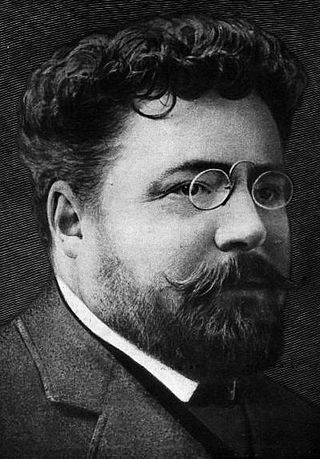
Gaston Louis Alfred Leroux was a French journalist and author of detective fiction.

Intolerance is a 1916 epic silent film directed by D. W. Griffith. Subtitles include Love's Struggle Throughout the Ages and A Sun-Play of the Ages.
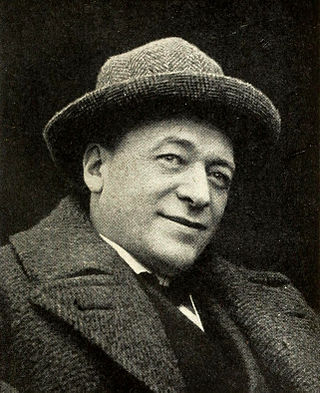
Émile Eugène Jean Louis Cohl was a French caricaturist of the Incoherent Movement, cartoonist, and animator, called "The Father of the Animated Cartoon".
Seventeen or 17 may refer to:

Lloyd Francis Bacon was an American screen, stage, and vaudeville actor and film director. As a director, he made films in virtually all genres, including westerns, musicals, comedies, gangster films, and crime dramas. He was one of the directors at Warner Bros. in the 1930s who helped give that studio its reputation for gritty, fast-paced "torn from the headlines" action films. And, in directing Warner Bros.' 42nd Street, he joined the movie's song-and-dance-number director, Busby Berkeley, in contributing to "an instant and enduring classic [that] transformed the musical genre".
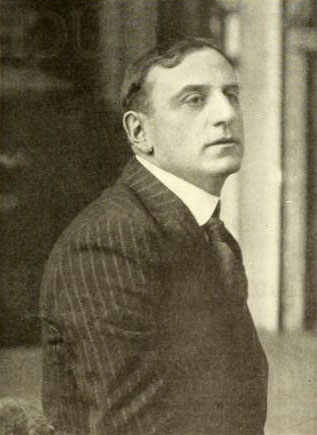
Maurice Félix Thomas, known as Maurice Tourneur, was a French film director and screenwriter.

Frank William George Lloyd was a British-born American film director, actor, scriptwriter, and producer. He was among the founders of the Academy of Motion Picture Arts and Sciences, and was its president from 1934 to 1935.

Italian futurist cinema was the oldest movement of European avant-garde cinema. Italian futurism, an artistic and social movement, impacted the Italian film industry from 1916 to 1919. It influenced Russian Futurist cinema and German Expressionist cinema. Its cultural importance was considerable and influenced all subsequent avant-gardes, as well as some authors of narrative cinema; its echo expands to the dreamlike visions of some films by Alfred Hitchcock.

Bernard Blier was a French character actor. He was born in Buenos Aires, Argentina, where his father, a researcher at the Pasteur Institute, was posted at the time.

The Allies, or the Entente Powers, were an international military coalition of countries led by France, the United Kingdom, Russia, the United States, Italy, and Japan against the Central Powers of Germany, Austria-Hungary, the Ottoman Empire, and Bulgaria in World War I (1914–1918).

Jacques Feyder was a Belgian actor, screenwriter and film director who worked principally in France, but also in the US, Britain and Germany. He was a director of silent films during the 1920s, and in the 1930s he became associated with the style of poetic realism in French cinema. He adopted French nationality in 1928.

Augusto Genina was an Italian film pioneer. He was a movie producer and director.
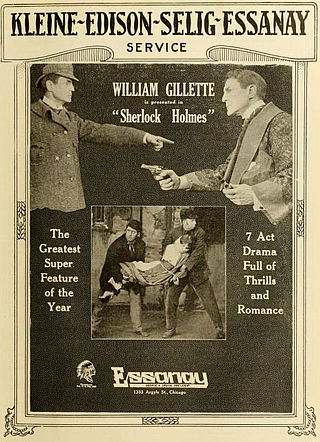
Sherlock Holmes is a 1916 American silent film starring William Gillette as Arthur Conan Doyle's Sherlock Holmes. Directed by Arthur Berthelet, it was produced by Essanay Studios in Chicago. The screenplay was adapted from the 1899 stage play of the same name, which in turn was based on the stories, "A Scandal in Bohemia," "The Final Problem," and A Study in Scarlet by Arthur Conan Doyle.

Joan the Woman is a 1916 American epic silent drama film directed by Cecil B. DeMille and starring Geraldine Farrar as Joan of Arc. The film premiered on Christmas Day in 1916. This was DeMille's first historical drama. The screenplay is based on Friedrich Schiller's 1801 play Die Jungfrau von Orleans. This film was considered to be the "first cinematic spectacle about Joan of Arc."

The Greatest Thing in Life is a 1918 American silent drama film about World War I, directed by D. W. Griffith and starring Lillian Gish, Robert Harron, and David Butler. The film is now considered lost as no prints are known to exist.
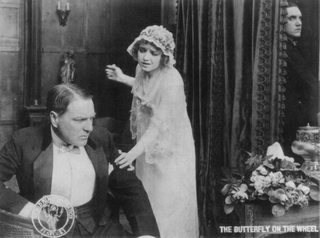
The World Film Company or World Film Corporation was an American film production and distribution company, organized in 1914 in Fort Lee, New Jersey.
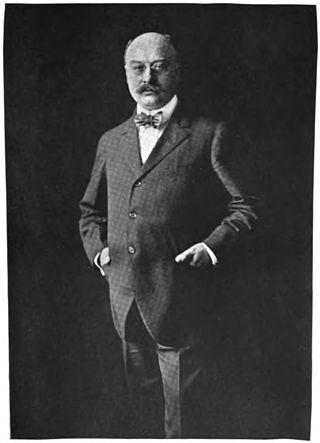
George Kleine was an American film producer and distributor and cinema pioneer.

Little Mary Sunshine is a 1916 silent movie directed by Henry King.




















